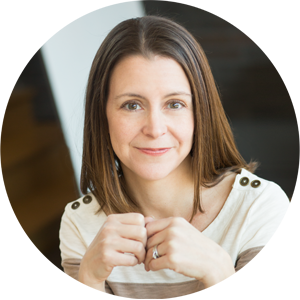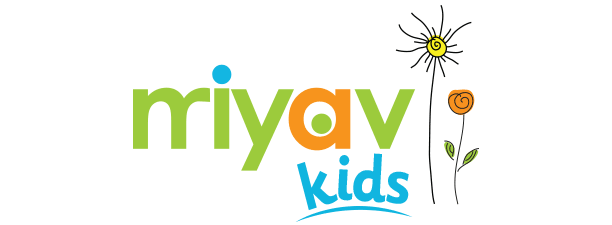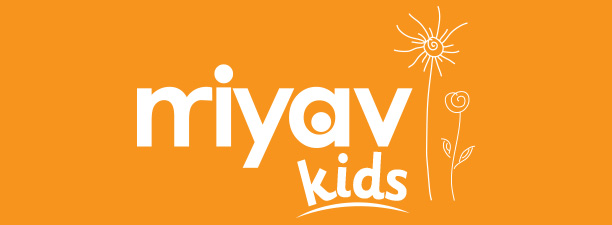20 Jan Learning from fellow parents
“Parents who were visiting preschools looked overwhelmed and didn’t know what questions to ask, or they asked questions about things that are actually not very important for children’s development.”

Suzanne Bouffard
Author
Suzanne Bouffard is an author and journalist. She has written many well-known articles about education and child development for The New York Times, The Atlantic, The Daily Beast, Parents, and The Harvard Education Letter. But her most prominent work is the incredible book on early childhood development and parenting. The book “The Most Important Year: Pre-Kindergarten and the Future of Our Children(Avery, 2017)” is an eye-opener for parents and teachers all over the world. Anyone who cares about children’s future should read, especially parents of kindergarteners. She has shared her parental experiences and tips with Miyav Kids and below is the excerpt.
1. Where did the idea for the book “The Most Important Year: Pre-Kindergarten and the Future of Our Children” come from?
I had been doing research on early childhood education for several years, and I knew there was a gap between what research says is best practice for preschools and what actually happens in many schools. But when I started visiting preschools, I was still surprised to see how much the quality of the programs varied from one place to another, even in a city with progressive values and a lot of resources. I was surprised to see that there were many programs that were well-resourced but not what I would consider high-quality. I also noticed that the other parents who were visiting looked overwhelmed and didn’t know what questions to ask, or they asked questions about things that are actually not very important for children’s development. I wanted them to have the same knowledge I had from my child development background and I realized there was a need for a resource that was accessible to parents, not just researchers and teachers. I’m so glad that parents tell me they learned a lot from reading the book and they have a clearer idea of what to look for. And I have been surprised how much the book has also resonated with and appealed to teachers. I think many of them are relieved to be able to point to the research and experts featured in the book who echo what they know from their own experience and to be able to say to their bosses and policymakers, “See, THIS is what we should be focusing on!”
2. What’s one trend that excites you about children/parenting?
I’m so glad that there is more focus on building kids’ self-regulation (self-control, ability to control impulses and handle difficult situations, etc.) in a positive way rather than through punishment. These skills don’t come naturally – they take practice, and all kids struggle with them at some point and in some way. They need their parents and teachers to give them the tools to develop those self-regulation skills. Traditionally, adults have punished children for acting out or not being able to control themselves, and that doesn’t do anything to teach them how to act differently. It just shames them and can end up making it even harder for them to do the right thing. When I was researching the book, and after when I was writing an article for The New York Times about positive approaches to behavior, I still heard and saw heartbreaking stories of where discipline approaches are not working for kids, but the tide is shifting and I hope those stories are becoming less common.
3. What does your typical evening look like and how do you make it great for your child?
In my family, we are very committed to having dinner all together. We share about our days, talk about what we’re all learning at school and work or from what we’re reading, laugh, and just generally enjoy time together. This is bonding time for us, and it gives us a chance to talk about all sorts of important things, from social conflicts the kids are having, to news stories and important issues like racism and inequality, to how we all experience frustration and how to handle it. It also allows us to model the ways we want our children to act, whether it’s table manners or how not to interrupt another person’s story or how to be helpful around the house. We’re lucky to have that time together every night, but if we didn’t, I would make sure we did it over breakfast or on the weekends.
We try to spend a few minutes every day, or every few days, sharing what we are grateful for. That helps us stay mindful and thankful. If my children have been arguing a lot, I ask them to share one thing they appreciate about the other. That helps them end the day on a positive note with each other.
Also, we make time every evening to read, and we have books all over the house.
It’s also important to have fun together, so sometimes we play board games or put on music and dance in the kitchen, or just read jokes and riddles to each other. We don’t have time to do these things every night, but remembering to do them once in a while is helpful.
4. What is one habit of yours that makes you more productive as a parent?
I’m a pretty organized person, and I’m trying to help my family be more organized, too. I love lists, and I try to use them with the kids. We have wipe-off boards where we write our morning to-do checklists, keep track of our screen time limits and usage, and write other reminders for the week. This way I can tell the kids to check their checklist instead of telling them every step of getting out the door. I’m hoping it will eventually teach them to take more responsibility for themselves, too – but we’re not quite there yet!
I also prioritize sleep – for the kids and the grown-ups. It helps everyone stay regulated and calm. Kids who sleep are happier, healthier kids. And the same definitely goes for us parents, too!
5. As parents, what is the one thing you do over and over and recommend everyone else do?
We tell our children the most important thing in the world is to be kind. When we say goodbye in the morning, we tell them to be kind and have a good day. When we talk about difficult situations, we talk about how to handle them with kindness. When they bother each other, we use the language of kindness. As they get older, we have been starting to talk about being gracious as well. That’s a trickier concept, so I think it’s especially important to explain what it does and doesn’t look like. The world sends us messages constantly that defy these important values, so I think it’s important to reinforce them every day.
6. What is one strategy that has helped you keep calm during storming moments caused by other members of the family?
I try to pause before reacting and take a deep breath. It’s simple but makes such a big difference. When my first child was a toddler, I did a lot of reading about mindful parenting, and that really taught me how to stay calm.
The other thing that is really important is trying to put yourself in your child’s mind. I always try to have empathy and think about why they are doing what they are doing. Sometimes they might not even know themselves. But that helps me see the situation as a problem to be solved. Sometimes it’s a simple fix. Other times it allows me to have a good, open conversation with them.
7. What is one failure you had as a parent, and how did you overcome it?
We all make mistakes sometimes or react in a way that we wish we hadn’t. When that happens, I’m honest with my kids and I apologize. And then I remind myself tomorrow is another day and one of the great things about parenting is that you always get another chance to do better the next day.
8. What is the best $100 you recently spent for your child? What and why?
Books are always a good investment. There are so many wonderful ones and you can never have too many! I also really value giving my children cultural experiences, like going to hear live music or watch a play or attend a cultural event in our city. That has a double benefit of making them curious and appreciative of broad experiences and also giving us as a family a chance to do things together.
9. What is one product or a service that helps you in parenting? How do you use it?
I really value the neighborhood- and city-based email lists with other parents, because it keeps me informed about what’s going on in the community, gives me ideas about things to do around town, and gives me ideas of how to approach some of the difficult things that come in parenting. I think connecting with other parents is very important – as long as it’s positive and there is no shaming or gossip. That’s just counterproductive. None of us should have the time or tolerance for that.
10. What is the one book that you recommend our community should read and why?
“Easy to Love, Difficult to Discipline” by Becky Bailey changed my parenting. I read it when my oldest was a toddler and it gave me a lot of insight into why toddlers act the way they do and a lot of helpful strategies to use. I think everyone should read it.
11. What people have influenced your thinking and might be of interest to others?
Ross Greene, Stuart Ablon, and Becky Bailey have all enlightened me about how children’s behaviors are a form of communication. Lisa Guernsey does great work on kids and screen time and writes in a very clear, helpful way. The early childhood coaches and staff in the Boston Public Schools (some of who I write about in my book) taught me so much about what great teaching and interactions with preschoolers should look like. And there are so many researchers doing excellent work on early childhood education, including the Center on the Developing Child at Harvard, CASTL at the University of Virginia, Stephanie Jones, Hiro Yoshikawa, and so, so many others.
Learn from fellow parents is an initiate by Miyavkids. Our purpose is to help parents learn from each other by sharing their experiences via small interviews. If you like to give an interview write to us.



